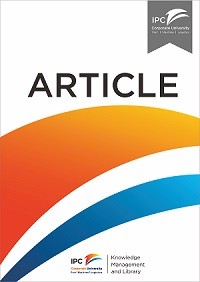Article
Sustainable Value Chain Management
What is an inherently good corporation? A “good” corporation has to be successful in economic terms but simultaneously contribute to the environment and strengthen social coherence. Within its various spheres of influence, it has to work according to universal ethical principles. Many corporations already act as a “good” one and without a lot of discussion about it. Yet, there are others, which do not work according to these values at all.
However, how do you distinguish a “better” corporation from a “normal” one? To tell them apart is difficult because there is currently no frame of reference for sustainability which can be applied to all corporations. Such a frame of reference, which enables competition between sustainable business models and value chains, is still to be established. Having a system of equal requirements for all business in place would enable the discussion about sustainable management to be more tangible, comprehensible, and invigorated. Otherwise sustainable economics
remains too vague and a matter of publicity rather than actual facts, which in the long run would cause more discontent than trust. We are a long way from understanding sustainable management as a matter, which requires attention also in economic and business-related settings. In fact, syllabi of economics or business management courses at university currently do not give an account of the current challenges faced by businesses or economic policies, including sustainability. Even better that the book at hand is a practical one, devoted to sustainability in products and value chains and showcasing the problems of sustainability, CSR, and market penetration: diverging juridical spheres, growing global population, demographic change in Europe, and different societal, ecological, and economic conditions. These are the facts that make it problematic to establish one universal frame of reference for sustainability. The question of whether corporations can be made subject to a more sustainable ecological, societal, and economic development at all poses a further challenge
Ketersediaan
Informasi Detail
- Judul Seri
-
CSR, Sustainability, Ethics & Governance
- No. Panggil
-
E-BOOK MG DHE s
- Penerbit
- Germany : Springer.,
- Deskripsi Fisik
-
424p.
- Bahasa
-
English
- ISBN/ISSN
-
2196-7083
- Klasifikasi
-
MG
- Tipe Isi
-
-
- Tipe Media
-
-
- Tipe Pembawa
-
online resource
- Edisi
-
-
- Subjek
- Info Detail Spesifik
-
-
- Pernyataan Tanggungjawab
-
Michael D'heur
Versi lain/terkait
Lampiran Berkas
Komentar
Anda harus masuk sebelum memberikan komentar

 Karya Umum
Karya Umum  Filsafat
Filsafat  Agama
Agama  Ilmu-ilmu Sosial
Ilmu-ilmu Sosial  Bahasa
Bahasa  Ilmu-ilmu Murni
Ilmu-ilmu Murni  Ilmu-ilmu Terapan
Ilmu-ilmu Terapan  Kesenian, Hiburan, dan Olahraga
Kesenian, Hiburan, dan Olahraga  Kesusastraan
Kesusastraan  Geografi dan Sejarah
Geografi dan Sejarah